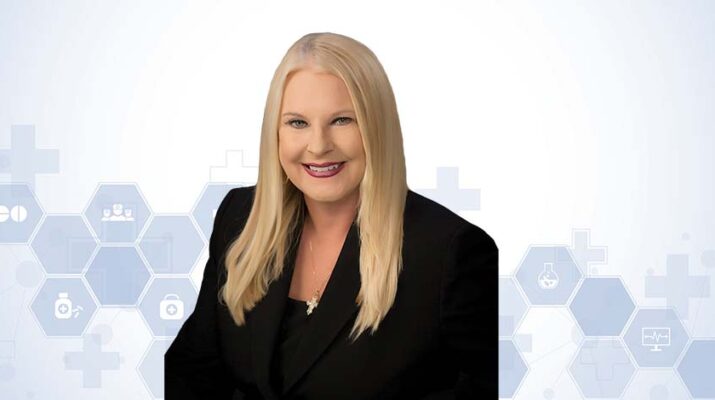By Todd Etshman
CEO of three groups — CP Rochester, Happiness House and Rochester Rehabilitation Center — discusses how her agencies are helping people with disabilities in the greater Rochester area
Cerebral palsy is a group of disorders that affect movement, muscle tone and posture caused by damage occurring to the immature brain as it develops. For 76 years, CP Rochester has supported individuals of all ages and abilities in the greater Rochester area in determining their own pathway in life.
In addition to the services it provides for people with cerebral palsy, CP Rochester assists some of the most vulnerable people of all ages in the community and has greatly expanded the services it provides for autism.
Mary Walsh Boatfield has been the CEO of CP Rochester for 20 years. She is also CEO of Happiness House and Rochester Rehabilitation Center.
Q: How great is the need for CP Rochester services today?
A: At CP Rochester, there is a great need for all services offered including dental, residential, preschool and clinic. According to the CDC, 1 in 44 children have been diagnosed with autism. CP has responded to the increase by expanding and developing autism services. CP is the visionary and a founder of the Golisano Autism Center, providing an array of educational, clinical, day programs and social and recreation services to hundreds of children, adults and family members each week. The GAC is located in the city of Rochester so that all individuals with autism can access this amazing center.
Q: Is the quality of life for people with autism better today?
A: For 76 years, CP Rochester has supported individuals of all ages and abilities in the greater Rochester area in determining their own pathway in life. The quality of life has improved for individuals with disabilities at CP because of our expertise in providing and securing good health care, high quality educational programs, safe and comfortable homes, social, sports and recreation activities and greater access to the community.
Q: What changes have you seen in CP Rochester during your tenure and what are you most proud of?
A: Currently, I am the CEO of CP Rochester, Happiness House and Rochester Rehabilitation Center. The three agencies are affiliated under a passive parent corporation, Ability Partners, Inc., formed in 2013. Together we serve more than 6,800 individuals operating in 15 locations with 650 employees. CP Rochester has seen growth in clinic, preschool and innovative housing options. I am very proud of our employees and their ability to navigate COVID and its challenges. We have developed noncertified transition apartments for individuals with intellectual and developmental disabilities who will learn to live more independently. The development of the Golisano Autism Center in 2019 was also a point of pride for CP by helping so many individuals obtain the services they want and need.
Q: What concerns does the organization face today?
A: We face similar challenges that other organizations do such as workforce shortages, unfunded mandates and inadequate program rate. Yet, we are innovative and forward-thinking and always looking for new opportunities.
Q: What does the future look like for CP Rochester?
A: The future looks very bright as we continue to advocate for the necessary funding for our services. Our fundraising efforts through Ability Partners Foundation are very strong and have assisted us in expanding and sustaining our programs and services.
Q: How many people does the agency serve today?
A: CP Rochester serves 2,500 individuals of all ages and abilities living in Monroe, Livingston and Orleans counties.
Q: Is funding for CP Rochester adequate? What are the primary funding sources?
A: Funding is rarely adequate from traditional funding sources. However, we are very successful with fundraising and obtaining grants from both government and private sources. Primary funding sources include Medicaid, OPWDD, State Education Department, County of Monroe and Department of Health.
Q: Are CP Rochester staffing needs being met in this challenging environment? How many employees are there? How many volunteers? What areas do you need more volunteers if any?
A: We currently employ 250 individuals and hundreds of volunteers annually. As most nonprofit organizations we have had recruitment and retention challenges in our residential and educational programs. Our new strategic plan focuses our efforts on reducing turnover and increasing retention. We have also increased salaries to stay competitive with similar organizations.
Q: Have you had to make operational changes due to ongoing COVID-19?
A: As you would expect, this has been the most challenging two years that Ability Partners agencies have ever experienced, having a huge impact on the lives of our consumers and employees. 790 days ago, many of our programs began closing due to the pandemic. Within days, we began offering remote educational, clinical and telehealth services to more than 1,000 individuals and continue to do so during these difficult times. Our 24/7 residential program staff worked diligently to ensure that some of our most vulnerable citizens were safe, healthy and happy as they could not leave their homes or have visitors for four months. Many staff worked long hours and in full PPE to assist all consumers. Numerous staff also contracted the virus and through prayers, protocols, diligence and good fortune, all recovered. We are still following many regulatory protocols to keep individuals safe and healthy.

